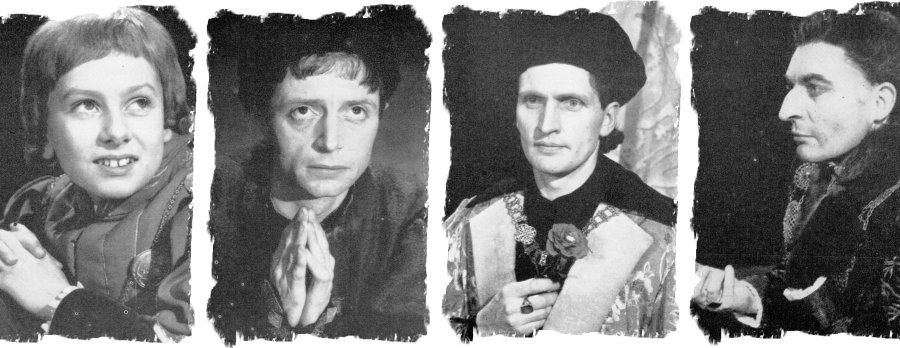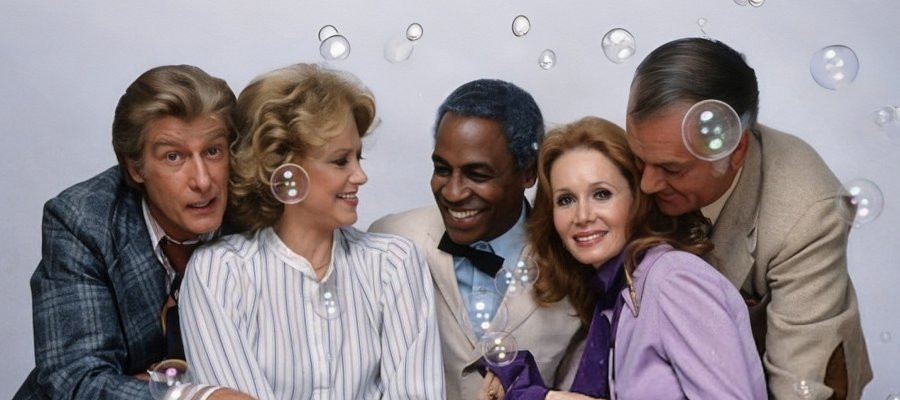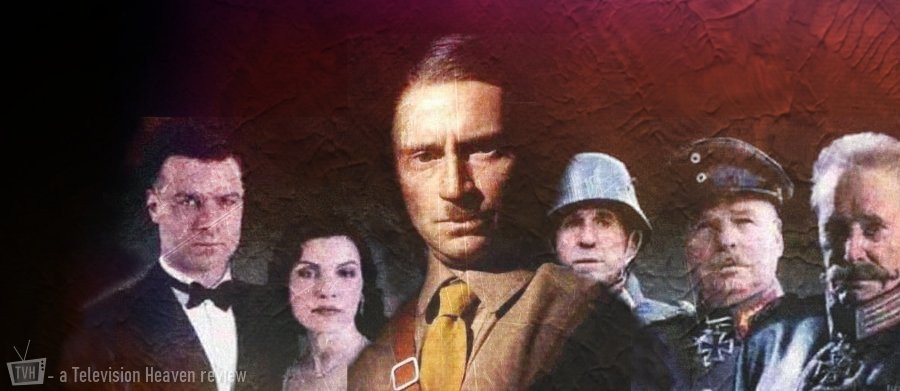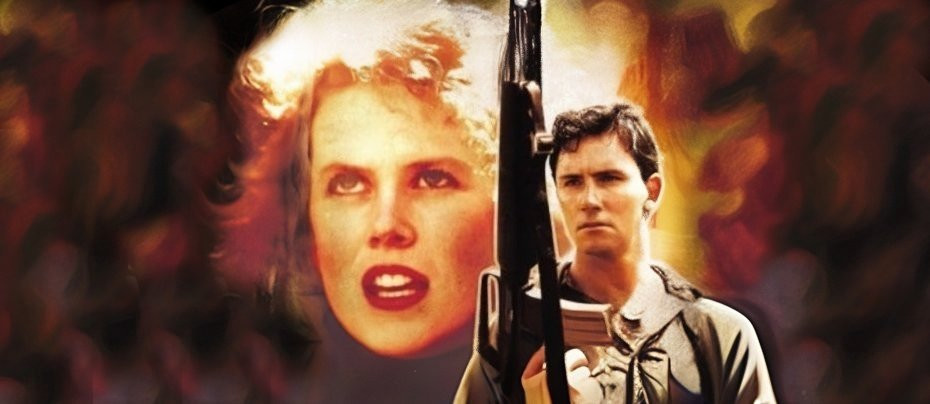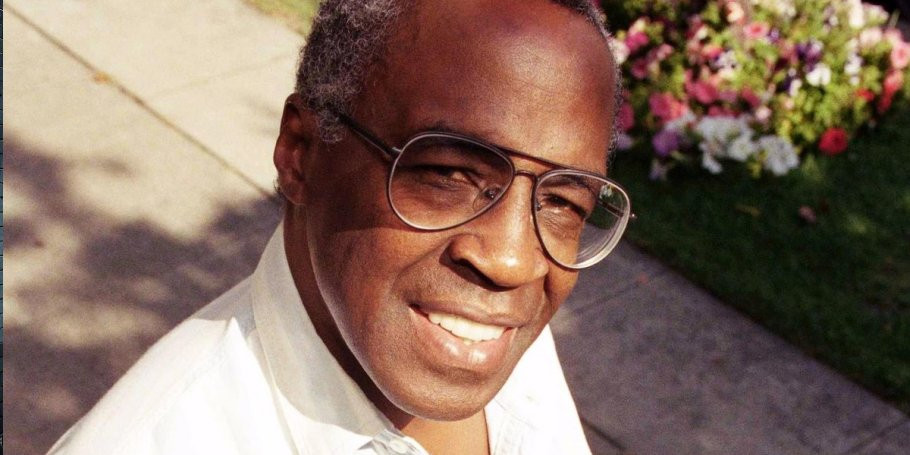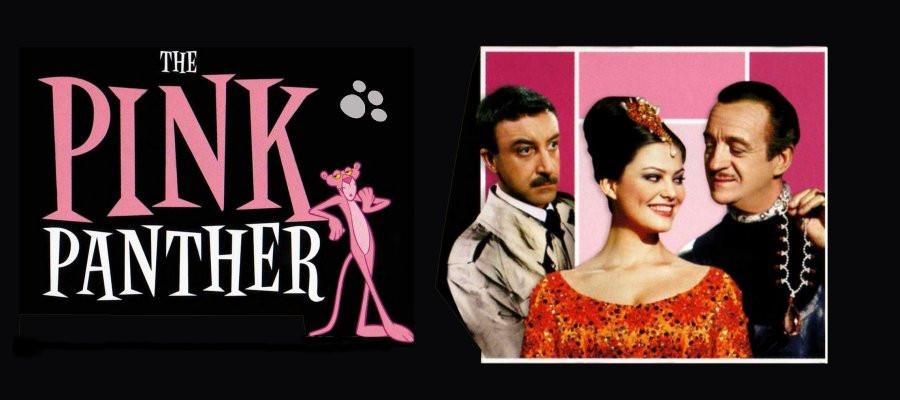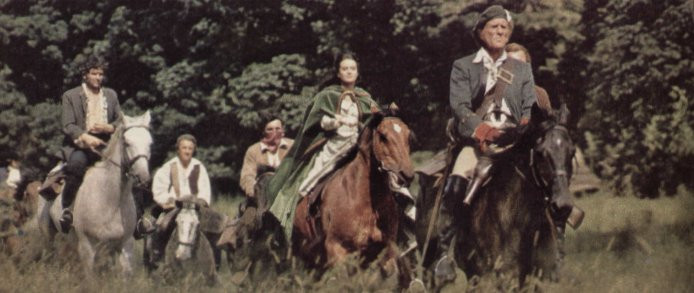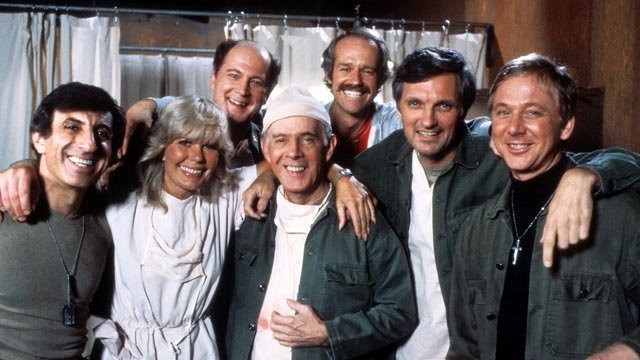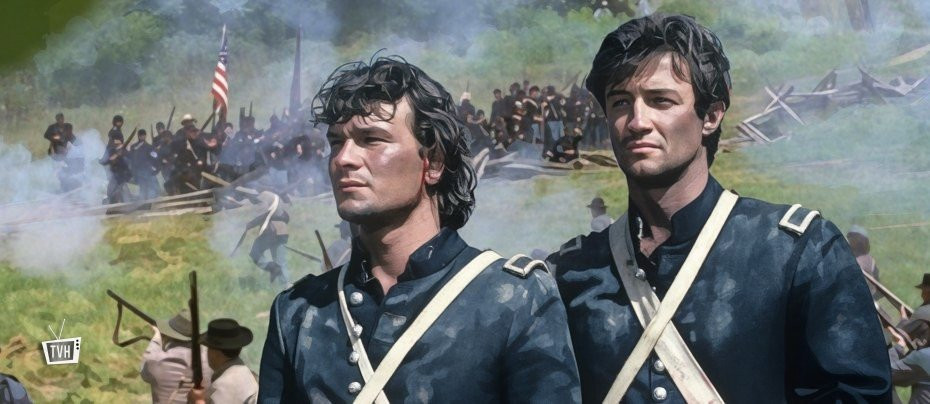
North and South
1985 - United StatesReview by John Winterson Richards
Based on a trilogy of novels by John Jakes, North and South is perhaps the archetype of the "Golden Age of Miniseries" on American television. It is itself really a trilogy of miniseries, each based on one of the novels, even if it should be noted that the plot and characterisation diverge increasingly from the source material as the story progresses. The first establishes the relationship between two wealthy families, one of Northern industrialists, the other of Southern plantation (and slave) owners, in the years leading up to the American Civil War. The second follows them through the Civil War itself and the third takes them into the awkward period of Post-War "Reconstruction."
It is therefore a very ambitious project, with a cast and production values to match, and at its best it achieves an epic quality that transcends television to touch on the cinematic. At its worst it is almost risible melodrama. The first two miniseries still hold up well, but the third, like the third novel, is best avoided by those who love the first two.
Those two were produced fairly soon after the publication of the respective novels on which they were based, the third following several years later, almost an afterthought, or rather a belated attempt to cash in on the popularity of what was by then a fondly remembered minor classic. The prominence given to the novelist's name is due to the trilogy coming out soon after the success of Jakes' mammoth "Kent Family Chronicles," a hefty set of novels that followed the eponymous family through over a century of American history that sold particularly well in the United States, having been published around the 1976 Bicentenary. The trilogy is in some ways an expansion of the parts of the Kent Family Chronicles that dealt with the Civil War, its prelude, and aftermath, except with (slightly) different characters and situations.
Although Jakes had the writing skills and the innate gift of pace that keep a reader engaged, his characters tend to be superficial and his plotting contrived. He more than made up for this with his meticulous research and an eye for the telling historical details which are fascinating in themselves. However, he was also a man of strong opinions, intending his trilogy to be a sort of antidote to what he saw as the crass sentimentality of Gone With the Wind.
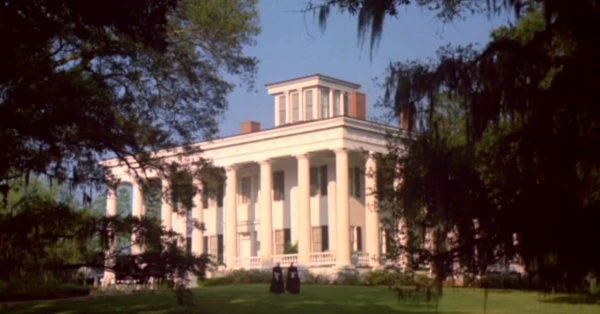
It is therefore ironic that the television adaptation owes much of its popularity to what looks like a definite attempt to reference GWTW, at least stylistically. The score by Bill Conti, best known for Rocky, has the same romantic sweep as Max Steiner's. There is all the glamour of balls, tightly cut uniforms, huge dresses, and immaculately maintained mansions, and very little attention to the slave quarters. Terri Garber's delicious Ashton is obviously Scarlett O'Hara, except with her selfishness turned up to 11, so that it becomes outright wickedness, and one of her beaux is a blockade runner, even if he is by no means as likeable as Rhett Butler. Another character, played by perpetual man's man Lee Horsley (Hawkeye), is obviously intended to be the true heir to Butler's roguish charm. If all that was not enough for GWTW fans, Olivia de Havilland herself turns up in a minor, but typically effective, guest role.
Of course it was necessary to make the Northern family ardent abolitionists and the Southern family relatively benevolent "liberal" slave owners (see our reviews of George Washington and George Washington II: the Forging of a Nation for more on the moral and dramatic challenges of making such characters sympathetic). Yet the script, while wearing its own politics prominently on its sleeve, is nevertheless to be commended for trying to explain the Southern point of view in a way that would simply not be allowed today. There is no understanding history unless one is willing to do this.
The Southern side was made even more attractive by the casting of a young Patrick Swayze as Confederate Brigadier General Orry Main. Always more of a presence than an actor, Swayze actually demonstrates considerable skill in this, his breakthrough role, showing how his character develops from eager young manhood to disillusioned middle age over more than two decades.
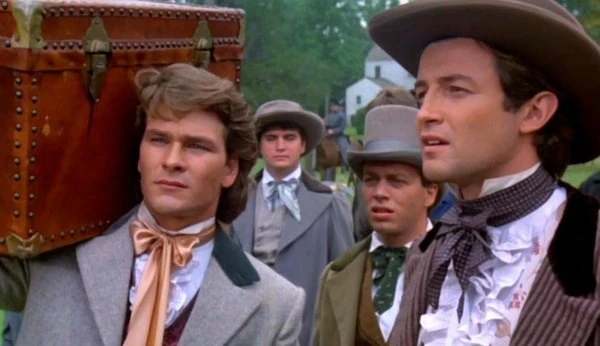
With Swayze claiming the lead simply by being Swayze, James Read, as Main's Northern friend and counterpart Brigadier General George Hazard, has a definite Will Riker vibe about him - which is ironic since Jonathan Frakes (Star Trek: The Next Generation) plays his unscrupulous brother. Kirstie Alley (Cheers) is a revelation in a serious dramatic role as the Hazards' fanatical abolitionist sister. She is portrayed at first as a selfish idiot - something else that would not be allowed these days - but emerges as a rather tragic figure who grows as a result of her experiences, just not enough to escape her own self destructive streak.
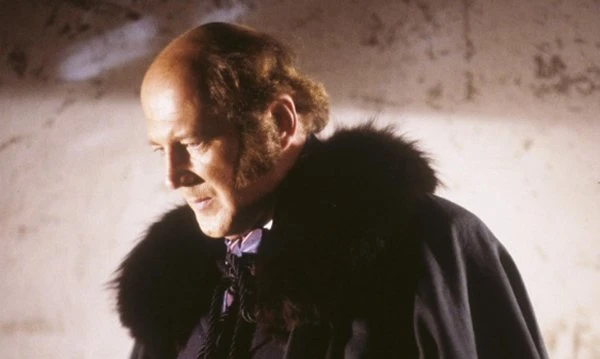
David Ogden Stiers (M*A*S*H) is also superb against type as an outwardly dignified Congressman who manipulates and exploits her. Philip Casnoff makes the biggest villain far more formidable than he is in the books, even if his character arc makes no sense at all. Lesley-Anne Down (Upstairs, Downstairs) is the object of Main's affection and David Carradine (Kung Fu) goes completely Simon Legree as her husband, a slave owner considerably less "liberal" than the Mains. If neither his sadism nor their relative generosity were typical of the South at the time, the point is worth making that both were possible. Slavery was a lot more complicated than both its opponents and defenders preferred to pretend.
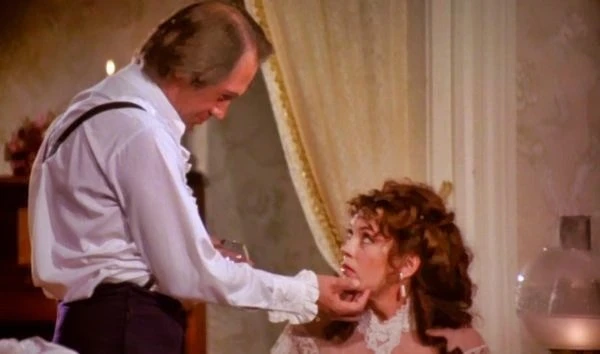
As part of a highly distinguished supporting cast, Jean Simmons is the matriarch of the Mains and Inga Swenson her opposite number among the Hazards. A perfectly cast Johnny Cash is wholly credible as John Brown and it is a pity he only has a very brief scene. Robert Mitchum is not the most convincing of Irishmen, but Hal Holbrook is a definitive Lincoln, or at least he was until Sir Daniel Day-Lewis redefined the part some years later. Lloyd Bridges is not historically accurate as Confederate President Jefferson Davis, but still puts in a good performance in its own right, even if it is hard to watch him now in straight role without thinking of Airplane! Gene Kelly is a non-singing, non-dancing US Senator. Elizabeth Taylor, no less, provides a very convenient plot device. The great Jimmy Stewart makes his last screen appearance, as a singularly helpful lawyer, and is predictably classy to the end.
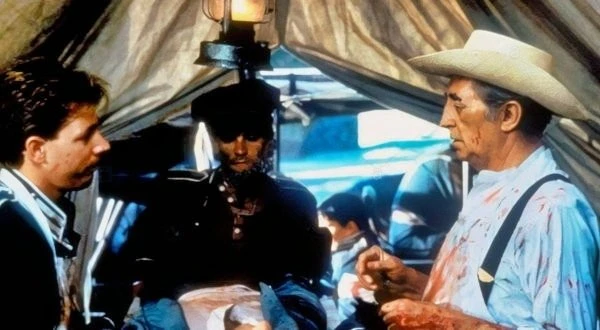
Other familiar faces include Robert Guillaume (Soap, Benson) as real life slave turned campaigner Frederick Douglass, Mark Moses and Anthony Zerbe as Ulysses S Grant at different points in his career, Forest Whitaker as an obsequious but disgruntled slave, Georg Stanford Brown as a more assertive slave, Linda Evans (Dynasty), Mary Crosby (Dallas), Morgan Fairchild (also Dallas), Clu Gulager (The Virginian), Bonnie Bartlett, Billy Dee William, John Anderson, Rip Torn, Robert Wagner, Nancy Marchand, Wayne Newton, Tom Noonan, and even Peter O'Toole.
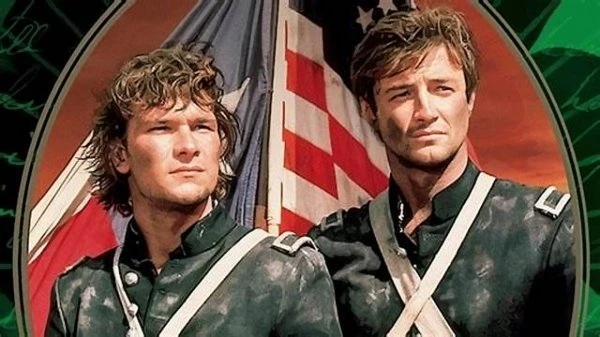
The visual production values are astonishing, especially for a time when there was no computer generated imagery. The Civil War action scenes are cleverly staged, so as to give the impression of being part of massive battles, and benefit from the participation of a large number of reenactment groups. Since reenactors tend to take their hobby very seriously indeed, the standards of historical accuracy are extremely high. It is satisfying to note nice touches like a non-speaking George Armstrong Custer being present at Lee's Surrender at Appomattox. The location work, costumes, props, and set dressing look incredibly expensive, and probably were. This is something else that one cannot imagine being done in the same way on modern television. The whole project makes one nostalgic, not for a romanticised version of the Old South that never was, but for a time when television prestige projects really were prestigious.
Seen this show? How do you rate it?
Seen this show? How do you rate it?
Published on August 30th, 2024. Written by John Winterson Richards for Television Heaven.



